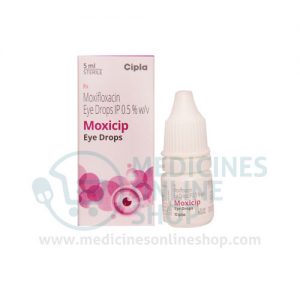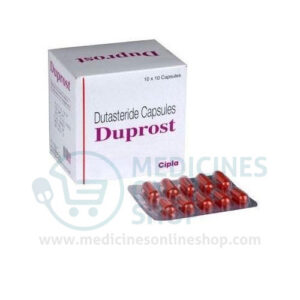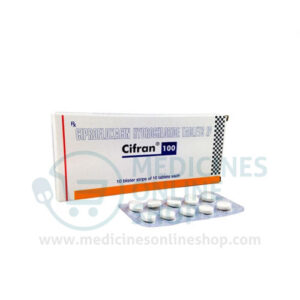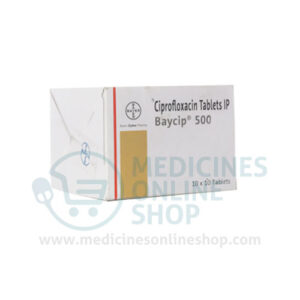Ofloxacin is used to treat certain infections including bronchitis, pneumonia, and infections of the skin, bladder, urinary tract, reproductive organs, and prostate (a male reproductive gland). Ofloxacin is in a class of antibiotics called fluoroquinolones. It works by killing bacteria that cause infections. Antibiotics will not work for colds, flu, or other viral infections.
Usage directions
Ofloxacin comes as a tablet to take by mouth. It is usually taken with or without food twice a day for 3 days to 6 weeks. The length of treatment depends on the type of infection being treated. Your doctor will tell you how long to take ofloxacin. Take ofloxacin at around the same times every day and try to space your doses 12 hours apart. Follow the directions on your prescription label carefully, and ask your doctor or pharmacist to explain any part you do not understand. Take ofloxacin exactly as directed. Do not take more or less of it or take it more often than prescribed by your doctor.
You should begin to feel better during the first few days of your treatment with ofloxacin. If your symptoms do not improve or if they get worse, call your doctor.
Take ofloxacin until you finish the prescription, even if you feel better. Do not stop taking ofloxacin unless you experience the symptoms of tendinitis or tendon rupture described in the IMPORTANT WARNING section or the symptoms of allergic reaction described in the SIDE EFFECTS section. If you stop taking ofloxacin too soon or if you skip doses, your infection may not be completely treated and the bacteria may become resistant to antibiotics.
Other uses
Ofloxacin is also sometimes used to treat other types of infection, including infections of the bones and joints and of the stomach and intestines. Ofloxacin may also be used to treat or prevent anthrax or plague (serious infections that may be spread on purpose as part of a bioterror attack) in people who may have been exposed to the germs that cause these infections in the air. Talk to your doctor about the risks of using ofloxacin to treat your condition.
This medication may be prescribed for other uses; ask your doctor or pharmacist for more information.
Special precautions
Before taking ofloxacin,
- tell your doctor and pharmacist if you are allergic or have had a severe reaction to ofloxacin; other quinolone or fluoroquinolone antibiotics such as ciprofloxacin (Cipro), gatifloxacin (Tequin) (not available in the U.S.), gemifloxacin (Factive), Levofloxacin (Levaquin), lomefloxacin (Maxaquin) (not available in the U.S.), moxifloxacin (Avelox), nalidixic acid (NegGram), norfloxacin (Noroxin), and sparfloxacin (Zagam) (not available in the U.S.); or any other medications.
- tell your doctor and pharmacist what other prescription and nonprescription medications, vitamins, nutritional supplements, and herbal products you are taking or plan to take. Be sure to mention the medications listed in the IMPORTANT WARNING section and any of the following: other antibiotics; anticoagulants (‘blood thinners’) such as warfarin (Coumadin, Jantoven); certain antidepressants; antipsychotics (medications to treat mental illness); cimetidine (Tagamet); cyclosporine (Gengraf, Neoral, Sandimmune); diuretics (‘water pills’); insulin and oral medications for diabetes such as glyburide (DiaBeta, in Glucovance, Micronase, others); certain medications for irregular heartbeat such as amiodarone (Cordarone), quinidine, procainamide (Procanbid), and sotalol (Betapace, Betapace AF, Sorine); nonsteroidal anti-inflammatory drugs (NSAIDs) such as ibuprofen (Advil, Motrin, others) and naproxen (Aleve, Naprosyn, others); probenecid (in Col-Probenecid, Probalan); and theoph
ylline (Elixophyllin, Theo-24, Uniphyl, others). Your doctor may need to change the doses of your medications or monitor you carefully for side effects. - if you are taking antacids containing aluminum, calcium, or magnesium (Maalox, Mylanta, Tums, others); didanosine (Videx); sucralfate (Carafate); or supplements or multivitamins containing iron or zinc, take ofloxacin 2 hours before or 2 hours after you take these medications.
- tell your doctor if you or anyone in your family has or has ever had a prolonged QT interval (a rare heart problem that may cause irregular heartbeat, fainting, or sudden death) or an irregular heartbeat and if you have or have ever had nerve problems, seizures, a slow heartbeat, a low level of potassium in your blood, chest pain, cerebral arteriosclerosis (narrowing of blood vessels in or near the brain that can lead to stroke or mini-stroke), or liver disease.
- tell your doctor if you are pregnant, plan to become pregnant, or are breast-feeding. If you become pregnant while taking ofloxacin, call your doctor.
- you should know that this medication may cause dizziness, lightheadedness, and tiredness. Do not drive a car, operate machinery, or participate in activities requiring alertness or coordination until you know how ofloxacin affects you.
- plan to avoid unnecessary or prolonged exposure to sunlight and ultraviolet light (tanning beds and sunlamps) and to wear protective clothing, sunglasses, and sunscreen. Ofloxacin may make your skin sensitive to sunlight or ultraviolet light. If your skin becomes reddened, swollen, or blistered, call your doctor.
Food limitations and special diet when taking Ofloxacin
Make sure you drink plenty of water or other fluids every day while you are taking ofloxacin.
Missed dose
Take the missed dose as soon as you remember it. However, if it is almost time for the next dose, skip the missed dose and continue your regular dosing schedule. Do not take a double dose to make up for a missed one and do not take more than 2 doses of ofloxacin in one day.
Possible side effects
Ofloxacin may cause side effects. Tell your doctor if any of these symptoms are severe or do not go away:
- nausea
- diarrhea
- constipation
- gas
- vomiting
- stomach pain or cramps
- change in ability to taste food
- loss of appetite
- dry mouth
- headache
- dizziness
- excessive tiredness
- pain, swelling, or itching of the vagina
Some side effects can be serious. If you experience any of these symptoms, or those mentioned in the IMPORTANT WARNING section, stop taking ofloxacin and call your doctor immediately:
- severe diarrhea (watery or bloody stools) that may occur with or without fever and stomach cramps (may occur up to 2 months or more after your treatment)
- rash
- itching
- hives
- difficulty breathing or swallowing
- swelling of the face, lips, tongue, or throat
- hoarseness
- loss of consciousness
- fever
- blistering or peeling skin
- yellowing of the skin or eyes
- dark urine
- muscle or joint pain
- pale skin
- shortness of breath
- unusual bruising or bleeding
- fast, pounding, or irregular heartbeat
- fainting
- seizures
- confusion
- hallucinations (seeing things or hearing voices that do not exist)
- nightmares
- difficulty falling asleep or staying asleep
- uncontrollable shaking of a part of the body
- depression
- thoughts about killing or harming yourself
- anxiety
- not trusting others or feeling that others want to harm you
- restlessness
- pain, numbness, burning, tingling, or weakness in the hands, arms, legs, or feet
- vision changes
Ofloxacin may cause problems with bones, joints, and tissues around joints in children. Ofloxacin should not be given to children younger than 18 years of age. Talk to your child’s doctor about the risks of giving ofloxacin to your child.
Ofloxacin may cause other side effects. Call your doctor if you have any unusual problems while taking this medication.
Storage and disposal of Ofloxacin
Keep this medication in the container it came in, tightly closed, and out of reach of children. Store it at room temperature and away from excess heat and moisture (not in the bathroom). Throw away any medication that is outdated or no longer needed. Talk to your pharmacist about the proper disposal of your medication.
Emergency/overdose
In case of overdose, call your local poison control center. If the victim has collapsed or is not breathing, call local emergency services.
Symptoms of overdose may include:
- drowsiness
- nausea
- dizziness
- hot and cold flushes
- numbness and swelling of the face
- slurred speech
- confusion
Other important information
Keep all appointments with your doctor and the laboratory. Your doctor may order certain lab tests to check your body’s response to ofloxacin.
Before having any laboratory test, tell your doctor and the laboratory personnel that you are taking ofloxacin.
Do not let anyone else take your medication. Your prescription is probably not refillable. If you still have symptoms of infection after you finish taking ofloxacin, call your doctor.
It is important for you to keep a written list of all of the prescription and nonprescription (over-the-counter) medicines you are taking, as well as any products such as vitamins, minerals, or other dietary supplements. You should bring this list with you each time you visit a doctor or if you are admitted to a hospital. It is also important information to carry with you in case of emergencies.
Disclaimer
We provide only general information about Floxin which does not cover all possible drug integrations, directions or precautions. Information at our website cannot be used for self-treatment and self-diagnosis. Any specific instructions for a particular patient should be agreed with his health care adviser or doctor in charge of the case. We disclaim reliability of this information and mistakes it could contain. We are not responsible for any direct, indirect, special or other indirect damage as a result of any use of the information on this site and also for consequences of self-treatment.




